Adventitious Lung Sounds
Introduction
This website offers free and paid lessons, auscultation guides and quizzes for adventitious breath sounds. On this page we provide a definition, and then we present examples of several types of adventitious breath sounds using audio recordings and text. Links to the free training courses are noted as well.
What Are Adventitious Lung Sounds?
Adventitious Lung Sounds are abnormal sounds that are heard over a patient's lungs and airways. These sounds include abnormal sounds such as fine and coarse crackles (crackles are also called rales), wheezes (sometimes called rhonchi), pleural rubs and stridor. Adventitious Lung Sounds are important clues used for diagnosing numerous cardiac and pulmonary conditions. These sounds and corresponding conditions are described in our breath sounds courses.
Auscultation of Adventitious Lung Sounds
Listening to these adventitious lung sounds usually with a stethoscope.
Adventitious Lung Sounds can be heard across the anterior and posterior chestwalls. Auscultation is best done in a quiet room, The chestpiece should be placed directly on the skin when possible.
Listen To Adventitious Lung Sounds
These are examples of common, adventitious lung sounds.Crackles
Crackles are discontinuous, brief, popping sounds. Similar to the sound of a hook and loop fastener being pulled apart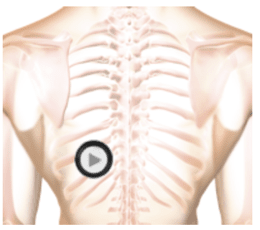

The patient was seated during auscultation.
Wheeze
Wheezes are continuous, musical sounds, high or low-pitched. Usually more pronounced on expiration.Audio Playback
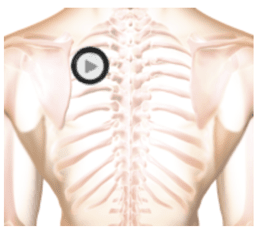

The patient was seated during auscultation.
Rales
Rales are discontinuous, brief, popping and bubbling sounds.Audio Playback
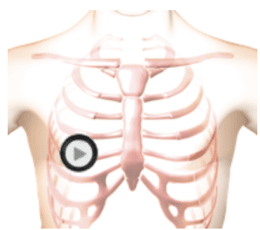

The patient was seated during auscultation.
Pleural Rubs
Pleural rubs are creaking or grating sounds that have been described as being similar to walking on fresh snow.Audio Playback
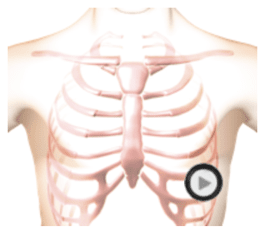

The patient was seated during auscultation.
Stridor
A loud, high-pitched sound heard during inspiration but may also occur throughout the respiratory cycle.Audio Playback
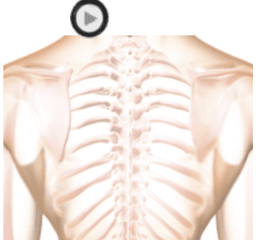

The patient was sitting during auscultation.
Adventitious Lung Sounds Reference Guide
Our auscultation guide provides information and examples of adventitious breath sounds. The guide pages provide waveforms with a moving cursor that is synchronized to the audio recording. In addition, listening tips are available.
Contributors
Authored by Diane Wrigley, PAReviewed by Dr. Barbara Erickson, PhD, RN, CCRN.
Special acknowledgement to Dr. Raymond Murphy, MD, PhD.
Quick Links to Other Breath Sounds
While we have many breath sound lessons and quick references on this website. Please use the links below.
Bronchial Breath Sounds
Wheezing
Rhonchi
Fine and Coarse Crackles
Rales
Egophony
Auscultation Lung Sounds Audio
Related Training Materials
Learn important breath sounds. Our lessons cover over 15 adventitious breath sounds. Please review the lesson descriptions and links below.
Authors and Reviewers
-
Heart sounds by Dr. Jonathan Keroes, MD and David Lieberman, Developer, Virtual Cardiac Patient.
- Lung sounds by Diane Wrigley, PA
- Respiratory cases: William French
-
David Lieberman, Audio Engineering
-
Heart sounds mentorship by W. Proctor Harvey, MD
- Special thanks for the medical mentorship of Dr. Raymond Murphy
- Reviewed by Dr. Barbara Erickson, PhD, RN, CCRN.
-
Last Update: 11/10/2021
Sources
-
Heart and Lung Sounds Reference Library
Diane S. Wrigley
Publisher: PESI -
Impact Patient Care: Key Physical Assessment Strategies and the Underlying Pathophysiology
Diane S Wrigley & Rosale Lobo - Practical Clinical Skills: Lung Sounds
- PESI Faculty - Diane S Wrigley
-
Case Profiles in Respiratory Care 3rd Ed, 2019
William A.French
Published by Delmar Cengage - Essential Lung Sounds
by William A. French
Published by Cengage Learning, 2011 - Understanding Lung Sounds
Steven Lehrer, MD
- Clinical Heart Disease
W Proctor Harvey, MD
Clinical Heart Disease
Laennec Publishing; 1st edition (January 1, 2009) -
Heart and Lung Sounds Reference Guide
PracticalClinicalSkills.com